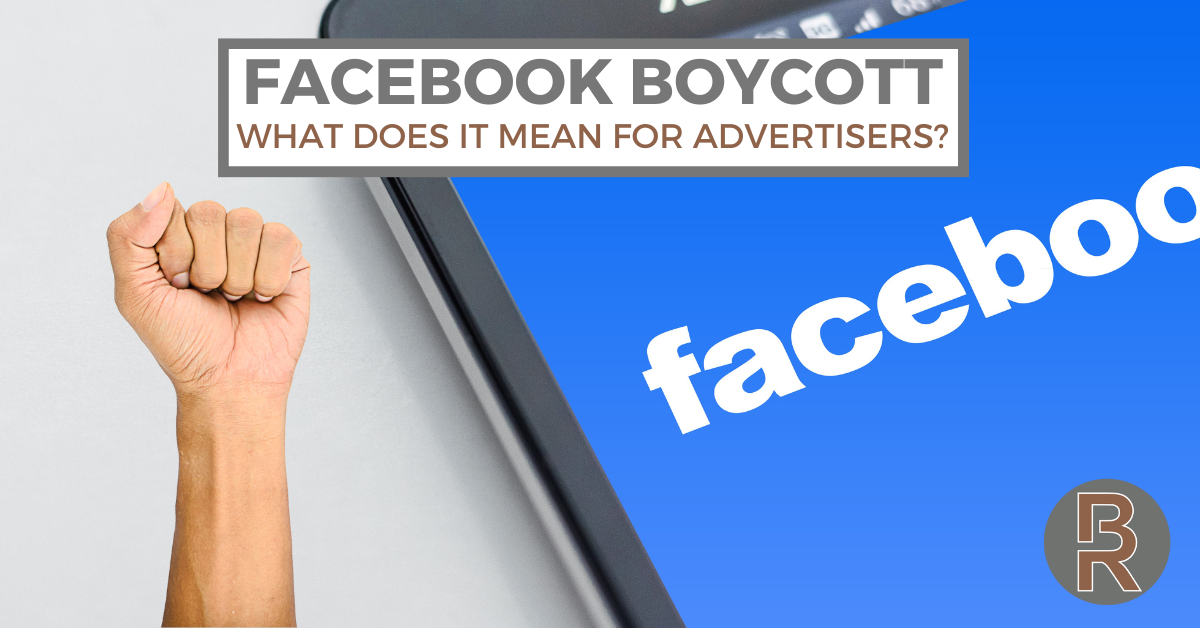
Many people have already heard about the Facebook Boycott. In fact, the search term began to skyrocket according to Google Trends in late June. By early July, more than 750 companies and the advertising agencies they work with joined in with larger advertisers leading the way such as Coca-Cola, Hershey, Walgreens, Best Buy, Ford, and Adidas just to name a few. At one point, over 200 additional firms joined in the boycott in a 24-hour period. The boycott originated from a call out by advocacy group Stop Hate for Profit claiming that social media providers, specifically Facebook which made 98% of its 2019 revenue from ad sales, allows hate speech on their platforms from the accounts of politicians and high-profile influencers. We briefly touched on this subject in a previous article, Medical Advertising Series Part 2: Social Media, Censorship, Fact-Checkers, and Implications. What does this boycott mean for advertisers and the future of advertising?
More Marketing Dollars for Other Platforms
With billion-dollar implications on Facebook ad revenue, where else will advertisers place ads? Some might say that other digital marketing platforms might see an increase in revenue. Facebook made almost $70 billion in advertising revenue in 2019. The Google Ads platform made a whopping $134 billion! Google-owned YouTube brought in a mere $15 billion in ad revenue in 2019 and video advertising grows more popular every year as more users are turning to YouTube to view content. OTT (over-the-top) advertising, which delivers video ad content through streaming services like Hulu, Netflix, Roku and more, could also see an increase. In 2020, OTT revenue was predicted to increase by 31% to $5 billion and with the continued popularity of streaming services versus cable TV and satellite, there is definitely room for growth.
Spending on Infrastructure
It is possible that with these freed-up marketing dollars, large companies like Coca-Cola or Best Buy could use the money within their corporations. Allocating some of these extra funds to pay off corporate debts or improve infrastructure might be fiscally responsible however since these are publicly traded companies, they would need to have some serious internal discussions as to where and how to revise their budgets. In this case, advertising firms would need to try and salvage any decrease in ad spend and convince them to increase advertising on other platforms.
Maybe Nothing
Facebook has spent many resources and time trying to appease their advertisers since the boycott began. They have had a tough go it as advertisers seem to have demands that Facebook has not yet been willing to abide by. Since ad dollars are how Facebook makes its revenue, it is likely that they will be able to come to an agreement with all or some of the advertisers. Facebook does have one advantage in that they are expected to increase to 1.69 billion global users in 2020. And even though there are 6.9 billion Google searches every day, Google search advertising is much more expensive than Facebook ads. As advertisers pause their Facebook advertising during this boycott, they will evaluate the effect it has on their overall bottom line and perhaps decide to come to an agreement moving forward.
If you have any questions about any type of advertising, we are here to help! Please give us a call at 713-309-6380 or contact us online.
Sources:
https://www.nytimes.com/2020/06/29/business/dealbook/facebook-boycott-ads.html
https://www.washingtonpost.com/technology/2020/07/03/facebook-advertiser-boycott-hate/
